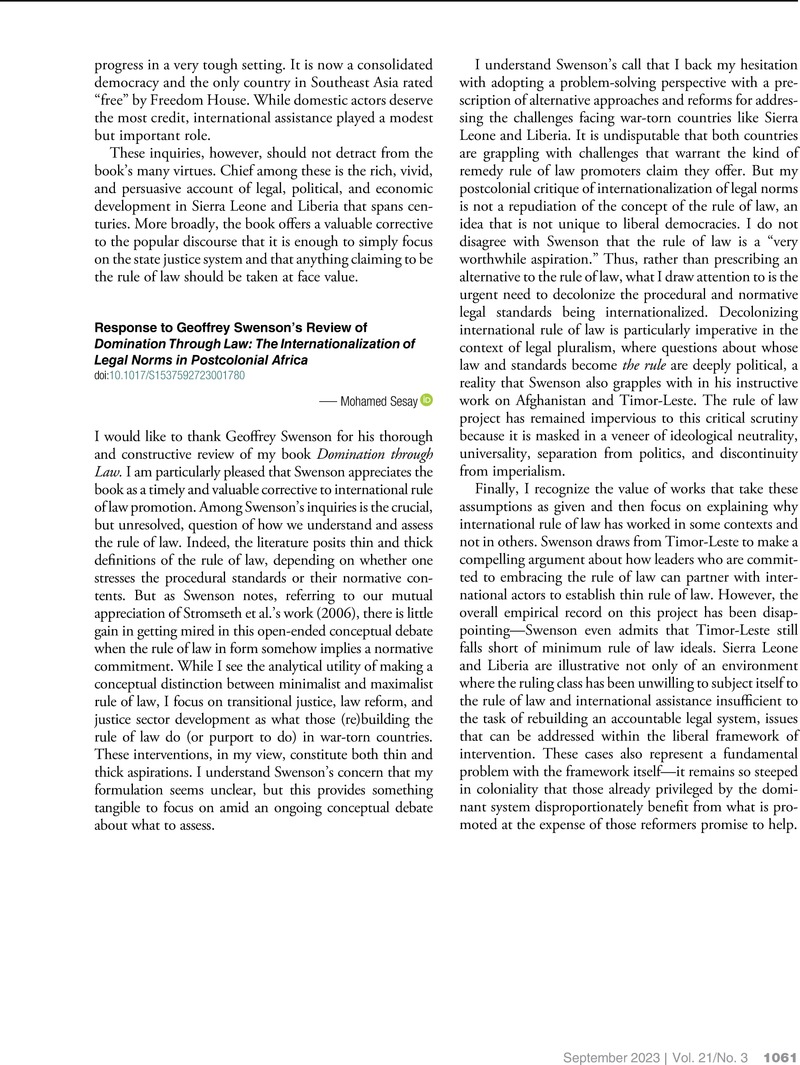No CrossRef data available.
Article contents
Response to Geoffrey Swenson’s Review of Domination Through Law: The Internationalization of Legal Norms in Postcolonial Africa
Published online by Cambridge University Press: 01 September 2023
Abstract
An abstract is not available for this content so a preview has been provided. Please use the Get access link above for information on how to access this content.

- Type
- Critical Dialogue
- Information
- Copyright
- © The Author(s), 2023. Published by Cambridge University Press on behalf of the American Political Science Association


